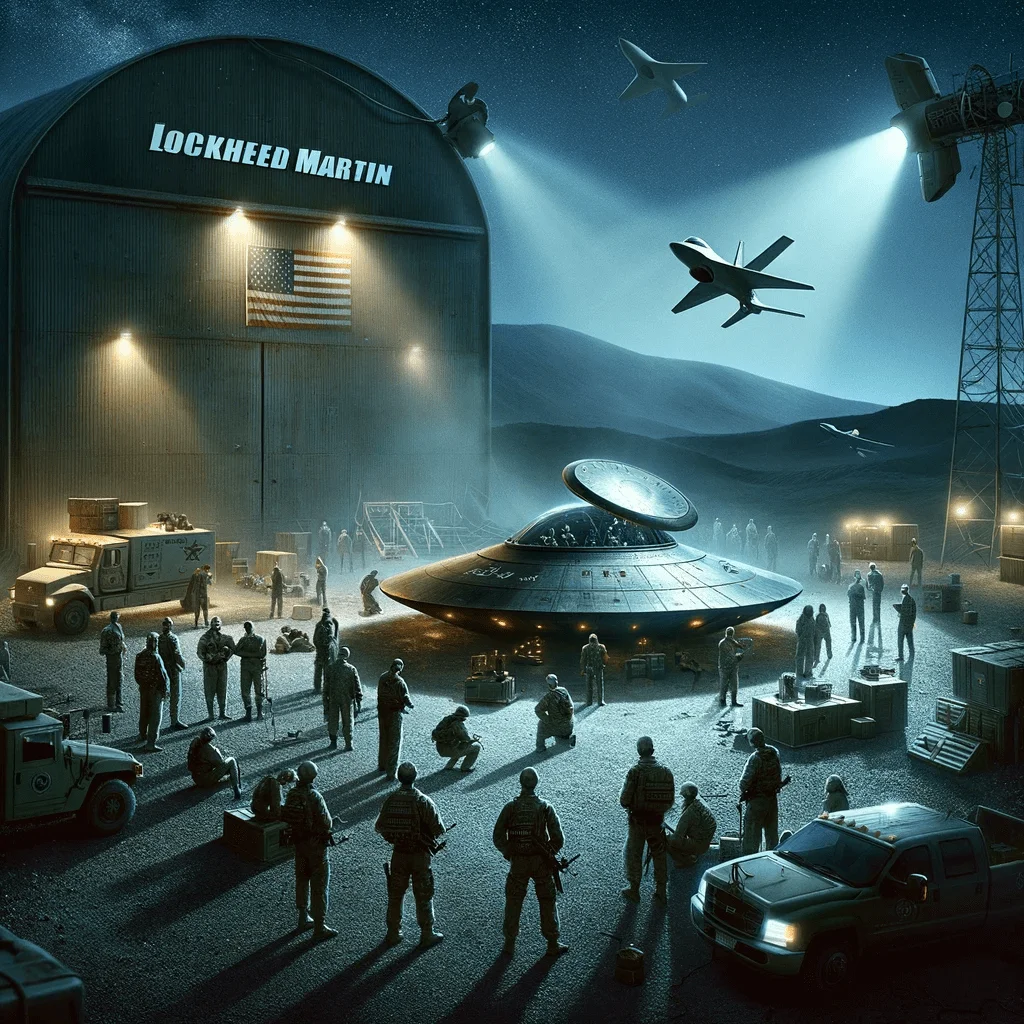Lockheed Martin’s Secret Alien Recovery Program and 2004 Nevada Firefight

In an intriguing interview on January 14, 2024, with Clayton Morris, a former Fox News anchor, John Stewart, a former congressional candidate and governor office aspirant from Illinois, discussed some claims. A whistleblower from Lockheed Martin alleged the existence of a secret alien recovery program within the company. This program involved a dedicated team responsible for recovering downed Unidentified Flying Objects (UFOs).
The whistleblower’s revelations included a remarkable incident from 2004, involving a firefight between Lockheed Martin and the Joint Special Operations Command (JSOC). This confrontation reportedly occurred when a Lockheed Martin Alien Reproduction Vehicle (ARV), developed using alien technology, crashed in Nevada. JSOC, mistaking the ARV for an extraterrestrial craft, engaged in a clash with Lockheed Martin’s team, resulting in the death of two JSOC members.
Stewart highlighted the extent of Lockheed Martin’s secretive operations, indicating that they had developed their own Non-Human Intelligence (NHI) craft and advanced radar systems to track Unidentified Aerial Phenomena (UAP). The company had reportedly made a significant breakthrough in reproducing alien technology, leading to the creation of their own ARVs. These developments were kept hidden from the government, with Lockheed Martin even misleading authorities about their progress in understanding NHI technology.
The whistleblower also claimed that Lockheed Martin had established a crash recovery program parallel to the government’s efforts. This program was so secretive that even a specialized military unit like JSOC was unaware of Lockheed’s advanced alien-like crafts. According to Stewart, the company had developed sophisticated recovery teams to retrieve their own ARVs before government agencies could intervene, indicating a complex relationship between the corporation and the government.
Adding to the intrigue, Stewart disclosed that his emails containing sensitive information were wiped from his phone just days before the interview, prompting him to go public with the story. He stressed that he did not seek sensationalism but felt compelled to share the whistleblower’s claims, especially considering the potential implications on national security and public trust.
The interview concluded with a discussion on the broader implications of such advanced technologies being hidden from the public. Stewart expressed concern about the moral and ethical considerations of withholding potentially life-changing technologies, such as advanced healthcare and energy solutions, from society. He warned of a potential public outcry if these revelations were confirmed, urging transparency and accountability from the government and corporations like Lockheed Martin.


